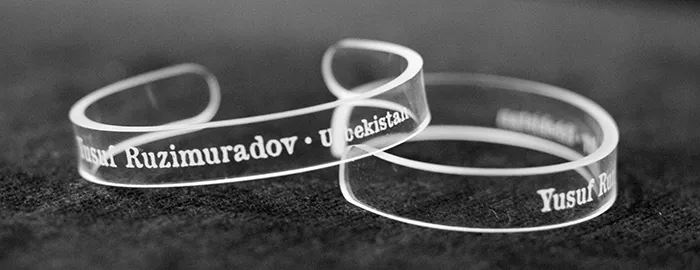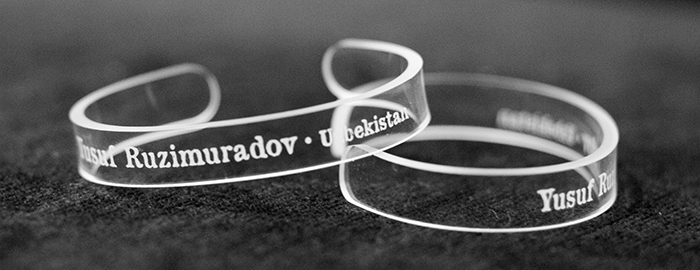Press Uncuffed: Free the Press

Assisting exiled Ethiopian journalists
This month, 12 Ethiopian journalists received refugee status following a concerted advocacy effort by CPJ and others over a series of months. More than 30 Ethiopian journalists fled the country in 2014–twice the number of Ethiopian exiled journalists CPJ documented in 2012 and 2013 combined–following a renewed government crackdown on the press, including a series of arrests. Ethiopia is one of the world’s leading jailers of journalists, CPJ research shows.
CPJ’s advocacy on behalf of the exiled Ethiopian journalists included a joint mission to Nairobi, where most of the journalists had sought refuge, and a meeting with the UN High Commissioner for Refugees (UNHCR). Refugee status offers certain protection, including against the journalists’ forcible return to Ethiopia.
Ensuring access to information in Nigeria’s election
CPJ helped a number of international journalists receive visas to Nigeria to cover the elections. The journalists said their visas had been denied or delayed by the Nigerian government. The Nigerian government claimed that it had granted or was in the process of granting the visas and, on February 5, said the Ministry of Information had processed 300 visa applications.
After the announcement, Peter Nkanga, CPJ’s West Africa representative, followed up with officials at the Nigerian Information Ministry and met with the director of public communications and the team within the ministry overseeing accreditation. Nkanga presented a list of journalists who had reported being denied visas or whose visas had been delayed. Some of the journalists on the list were granted visas.
Presidential and federal parliamentary elections were held in Nigeria on March 28 and 29, according to news reports. A few days later, President Goodluck Jonathan conceded defeat to Muhammadu Buhari, a former military ruler, news reports said.
Journalists released in Myanmar and Somalia
Myanmar: Two journalists were freed from prison on March 13, a day after CPJ issued an alert calling for their release. Police arrested Nyan Lin Tun, a reporter for the local-language Myanmar Post, and Phyo Aung Myint, a journalist at the local Reporter News Journal, as the two were covering a student protest in central Myanmar, according to news reports.
“While we welcome the release of journalists Nyan Lin Tun and Phyo Aung Myint, we’re advocating strongly for the freedom of the other 12 reporters currently behind bars in Myanmar,” said Shawn Crispin, CPJ’s senior Southeast Asia representative.
Somalia: Mohamed Bashir Hashi, the last journalist in custody from an original group of four radio journalists detained since 2014, was released on March 23. The four journalists were arrested in August 2014 and their radio station closed. Three of them were released earlier this month after being convicted of public incitement and publishing false news. They were forced to pay a fine.
CPJ welcomes two new board members
This month, New York Times Deputy Executive Editor Susan Chira and David Remnick, editor of The New Yorker magazine, joined CPJ’s board of directors.
“These two immensely accomplished editors will contribute greatly to CPJ’s advocacy for our colleagues around the world at a time when journalists are in greater than ever danger of being killed or imprisoned,” said Sandra Mims Rowe, chairman of CPJ’s board. “We are extremely proud to have David Remnick and Susan Chira join us in our work.”
Marking the fourth anniversary of the Syrian uprising
To commemorate the fourth anniversary of the Syrian uprising, CPJ participated in the #HowManyMore campaign on Twitter, in which the names of those killed in Syria since 2011 were read out and tweeted. Jason Stern, CPJ’s Middle East and North Africa research associate, spearheaded the campaign and, on March 15, tweeted the name of every journalist who CPJ determined has died while covering the conflict.
The list was so long that it took more than four hours to tweet at a rate of one every three minutes, which helped dramatize the terrible toll.
Stern also published a blog post remembering the at least 81 journalists killed covering the Syrian conflict. “To those who hold power in Syria–those who wield weapons and those who wield influence–we urge you to do your utmost to protect all journalists,” he wrote. “Because CPJ has only one answer to the question #HowManyMore journalists should lose their lives covering this terrible war: zero.”
CPJ in the News
CPJ’s Europe and Central Asia program coordinator, Nina Ognianova, was featured on Radio Free Europe discussing the deteriorating climate for press freedom in Crimea.
CPJ Asia Programs Coordinator Bob Dietz appeared on CNN International to discuss Washiqur Rahman Babu, a blogger in Bangladesh who was killed this month.
CPJ’s Americas Program Research Associate, Sara Rafsky, spoke to VICE News about Carmen Aristegui, who was fired this month after exposing government conflicts of interest.
CPJ Advocacy Officer Samantha Libby published a piece in the Columbia Journalism Review calling on the media to not let the Islamic State usurp the press freedom agenda.
Events: Where we were this month
March 1-6, 2015 – Circumvention Tech Festival, Valencia Spain
March 6-8, 2015 – Nobel Peace Prize Forum, Minnesota
March 6-9, 2015 – ‘Government Control Through the Internet,’ Inter American Press Association, Panama City
March 17, 2015 – The New Censorship: Inside the Global Battle for Media Freedom, Frontline Club, London
March 26, 2015 – Press Uncuffed: Free the Press, Newseum, Washington, DC
